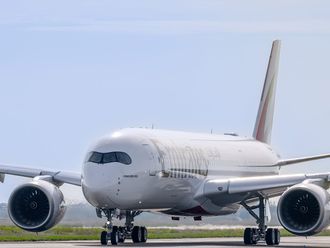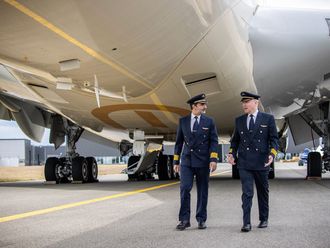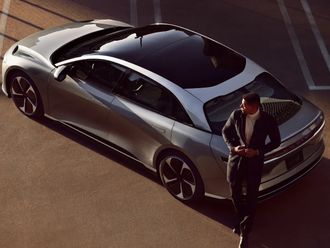Dubai: The Indian airline IndiGo has ditched its low-cost carrier status for good. And now, it is starting on a journey to take on the competition with a Business Class on select domestic flights. And with plans to introduce these services on international routes too.
The airline currently operates 210 flights a week into the Gulf. “In the UAE alone, we offer 200 a week, which will continue to grow,” said Pieter Elbers, CEO. “If at any point, we decide that (Gulf frequencies) would be part of the busiest business routes, we will launch it.”
The airline also has plans to expand into Oman, given the near-collapse of that Indian budget carrier Go Air and Air India’s ongoing route consolidation plans. “Because of that, we still have further room for growth in Oman,” the CEO added.
India’s fastest-growing budget airline, IndiGo’s next growth phase is clearly to expand beyond being a low-cost carrier, and this includes keeping options for other cabin classes such as Premium Economy. As far as Elbers is concerned, IndiGo ‘left that station already’ when referring to the airline's low-cost categorisation.
Elbers said: “We have a tailor-made product for the Indian market. India’s population is very diverse. (Our) business model is to serve the market in an adequate way for India.”
“India still has millions of first-time flyers each year. Today, we have (a fleet of) 300 aircraft and 100 million customers. We will double by the end of the decade, and we will still have millions of first-time flyers, for whom our promise of affordable fares remains crucial.”
Fast-growing fleet
The airline has solid plans for the future with its upcoming aircraft orders, which include planes from the Airbus A320 family, including the A321XLR aircraft, which opens up opportunities to operate non-stop flights linking primary and secondary cities worldwide.
“The A321 XLR will bring us into Europe and further away into Asia,” the CEO said. “So, it's a natural extension of the range of possibilities. Then, if we go to the US or not, that is open for debate.”
Earlier this year, the airline forayed into the wide-body space with a firm order for 30 Airbus A350-900 aircraft. The airline also has purchase rights for an additional 70 Airbus A350 aircraft. “The A350s are coming only in 2027, so we have another three years to figure that out,” said Elbers.
With its current fleet (of 300 aircraft), nearly 1,000 A320 Family aircraft on order, and the latest wide-body aircraft additions, IndiGo is well-positioned to expand and enhance its extensive network, said Elbers.
Not worried about delivery delays
The airline made history in 2023 by placing an order for 500 A320 Family aircraft. The CEO is not too concerned about timely delivery – an issue plaguing airlines amid ongoing supply chain and regulatory challenges.
“What's important for us is that we have an order book of this magnitude, which is allowing us time to absorb some fluctuations and potential variations in the delivery scheme,” said Elbers. “We have 1,000 planes on order between today and the middle of the next decade.
“That means we will have a new plane coming in every week, which is a very, very significant number. Against that backdrop, we are well prepared and equipped to deal with some variations.”










